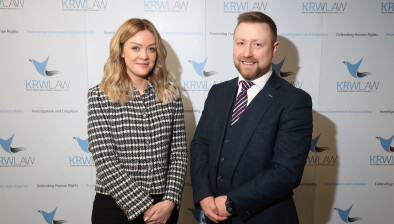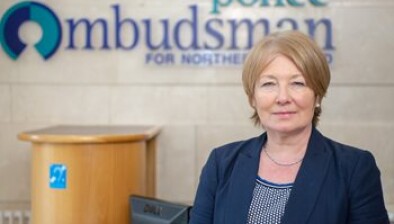Independent expert to weigh up formal engagement with paramilitaries

Fleur Ravensbergen
The UK and Irish governments have jointly appointed an independent expert to consider whether there should be formal engagement with paramilitary groups in Northern Ireland to help disband them.
Fleur Ravensbergen, an independent conflict resolution and negotiation practitioner and a lecturer in conflict resolution and governance at the University of Amsterdam, has been appointed to the role following a joint selection process.
She will carry out a short scoping and engagement exercise to assess whether there is merit in, and support for, a formal process of engagement to bring about paramilitary group transition to disbandment and submit a report by mid-August 2026.
The decision to appoint an independent expert was announced in February and is unrelated to the recently announced joint framework for dealing with the legacy of the Troubles.
Northern Ireland’s justice minister, Naomi Long, has criticised the move, saying formal engagement with paramilitary groups is not “appropriate”.
The UK’s Northern Ireland secretary, Hilary Benn, said: “The government is committed to working with partners in Northern Ireland to support efforts against the enduring threats and harms posed to communities by paramilitary groups.
“There is no justification for paramilitary groups and they should have left the stage long ago. But they haven’t. It’s therefore right that we test whether there is more that can be done to end paramilitarism.
“This appointment follows the commitment made by the UK government and the government of Ireland to commission a short scoping and engagement exercise to assess whether there is merit in, and support for, a formal process of engagement to bring about paramilitary group transition to disbandment.
“I am delighted that Fleur Ravensbergen has agreed to take on this important role. She brings a great deal of expertise and experience, and her analysis will provide an important contribution to efforts to bring paramilitarism to an end.”
Jim O’Callaghan, the Irish minister for justice, home affairs and migration, said: “It is vital that we are doing all that we can to end paramilitarism. I am convinced that the time is right to test whether there is the basis for paramilitary group transition to disbandment.
“27 years since the signing of the Good Friday Agreement, it is past time that the paramilitary groups accepted the democratic will of the people of this island.
“The exercise to be undertaken by the independent expert gives us an important opportunity to inform a future decision by the governments as to whether there is the basis for a formal process of transition.
“Fleur Ravensbergen brings a wealth of international experience and expertise to these significant and complex issues and I am very pleased that she has agreed to take on this role. I am confident that through her engagement and with her report next year, she will make an important contribution to these collective efforts.
“I wish her well in her work.”
In a statement issued as leader of the Alliance Party, Mrs Long said: “We are committed to seeing all paramilitary organisations disbanded; however, we do not believe that this is the appropriate approach.
“We have reiterated that position to the secretary of state and to the Irish government and our view that 28 years after the Good Friday Agreement, the route to ending paramilitarism has to be through more robust law enforcement, coupled with more targeted community relations work to tackle vulnerability and the harms they cause.
“Governments engaging directly with illegal organisations risks providing a veneer of legitimacy to paramilitary groups and criminal gangs, which persist based on a combination of threats, intimidation and organised crime.
“The appointment of an interlocutor risks undermining the good work which is already being done to end paramilitarism and organised crime.
“The idea that paramilitary groups can transition into law-abiding entities has long since moved beyond the point of credibility. They cannot continue to be treated as if they are genuinely committed to reform; that moment passed long ago.
“Whilst we all want to see paramilitarism ended and those currently engaged in it to desist, I cannot understand what the impediment is to them doing so now, if they are genuinely keen to do so.
“There can be no negotiation or sweeteners involved, so it is difficult to see what purpose an interlocutor will serve, but easy to see how it could give these groups a credibility which they don’t deserve.”










